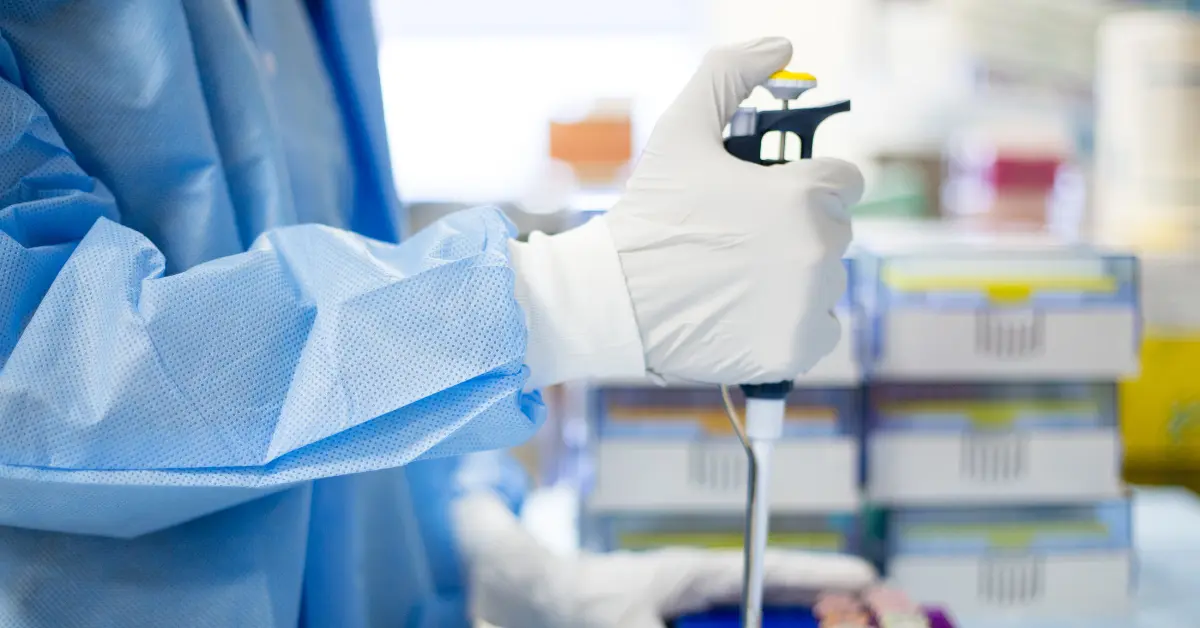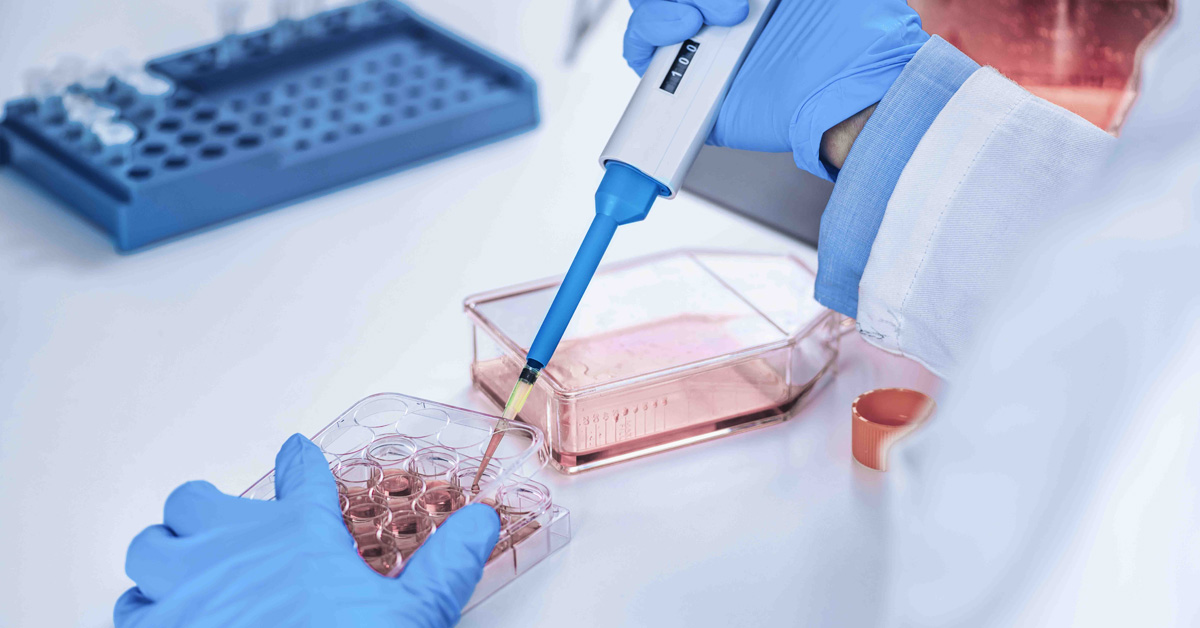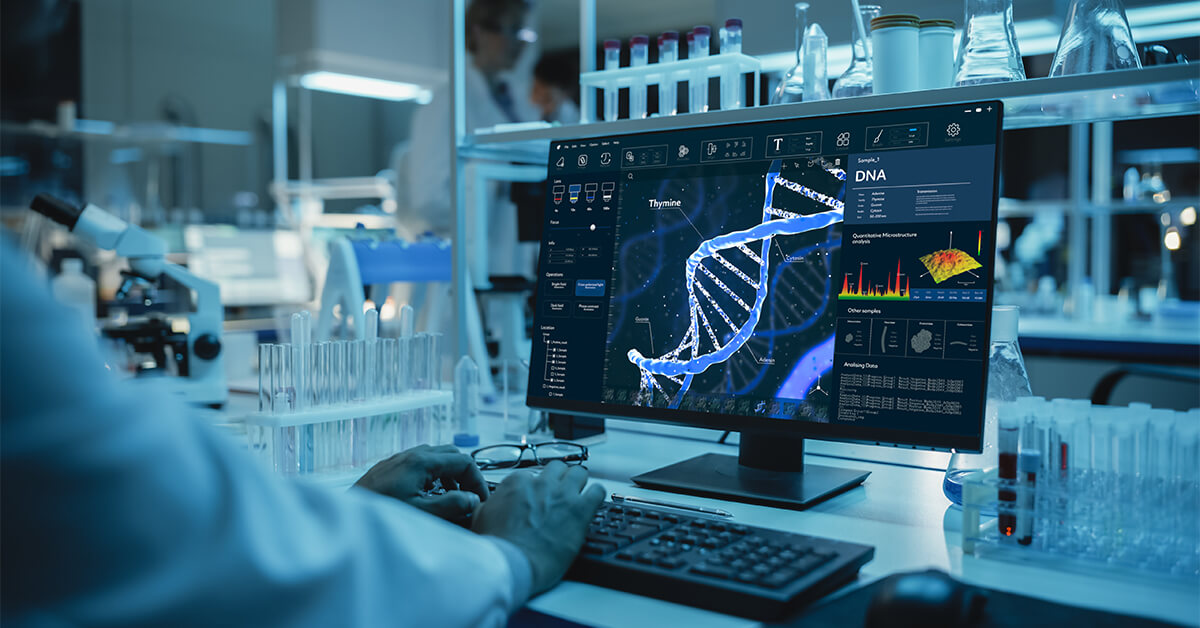Off-the-shelf allogeneic CAR T cells were once more a dream than a practical goal.
Now the race is on. With over 50 early-stage clinical trials in progress, it seems only a matter of time before allogeneic CAR T cell treatments become a clinical reality. [1]
Existing CAR T cell therapies are all autologous, meaning the T cells being used for treatment are donated by an eligible patient, modified to recognize and fight their cancer, then infused back into the same patient.
Allogeneic CAR T therapies are different; therapeutic T cells come from healthy donors rather than the patient. This difference offers many benefits. Cells from healthy donors are much easier to source and are much more likely to be healthy and functional. If problems regarding immunogenicity can be solved, T cell donations from several donors could be pooled, genetically modified, expanded, and then stored cryopreserved at treatment centers, or quickly shipped to the required locations. The benefits of a “universal” T cell therapy that could be administered to a large, diverse patient population would significantly lower total manufacturing costs and ensure CAR T treatments are available when doctors and patients need them.
Until the last few years, allogeneic CAR T therapies were little more than a pipe dream. The risk that infused cells from a donor who was not the patient would elicit an overwhelming immune response such as Cytokine Release Syndrome (CRS) or Graft versus Host Disease (GvHD) was too great. There is also a risk of host immune rejection, which would prevent donor cells from exerting any benefit. Nevertheless, scientists persevered, knowing that widespread access to these life-saving therapies would never be practical until allogenic versions of CGT treatments could be achieved.
Newer generations of CAR T therapies incorporate strategies that help abrogate the risk of a dangerous immune response. Allogeneic therapy is now more feasible, and as a result the number of allogeneic CAR T therapies in clinical trials is slowly growing.
The development of CRISPR-Cas9 and other gene-editing technologies have enabled several different immunogenicity mitigation strategies. Expression of endogenous TCR complexes can be abrogated to minimize the risk of GvHD, while genetic disruption of HLA molecules helps allogeneic CAR T cells evade the patient’s immune response. [2,3] Multiple design approaches can be incorporated into a single CAR T design. For example, CARs can be “programmed” with an inducible activation system, target more than one antigen, or incorporate adjustable control of cytotoxicity levels.
Cell culture media also has a role to play in reducing toxicity and promoting therapeutic function. Xeno-free media solutions, like those developed at Nucleus Biologics, help to reduce off-target effects and safety issues, particularly the potential for contamination of the final therapeutic product with zoonotic pathogens. Custom media can also be designed to enhance critical therapeutic functions such as cytotoxic activity and transduction efficiency. This in turn potentially allows for a lower dose of CAR T cells to be effective.
Allogeneic CAR T therapies in clinical trial today are testing several design approaches in a race to find the most effective treatments and strategies. A handful have already successfully completed the phase 1 clinical trial phase, which is primarily concerned with safety, and will move forward to examine dosing effects in larger populations of enlisted participants.
One of the more promising studies recently published phase 1 results in the journal Nature [4]. The study is focused on the treatment of multiple myeloma, an incurable form of blood cancer, with ALLO-715, a first-in-class anti-B cell maturation antigen (BCMA) allogeneic CAR T cell therapy candidate. T cells used as starting material for the new therapy came from healthy donors, making it easier to source the large number of cells needed to dose multiple patients. Nearly 90% of the 43 enrolled patients received allogeneic CAR T cells only 5 days after enrolling, a remarkably short time compared to the 6 weeks it would take to prepare CAR T cells for autologous treatment.
To thwart the risk GvHD, trial patients were first “lymphodepleted” with a chemotherapy mixture that included a proprietary anti-CD52 antibody. The use of an antibody against CD52, a protein found primarily on the cell surface of B and T lymphocytes, triggers a potent immune response in the patient that depletes their own CD52-expressing immune cells, thus creating a favorable environment for infused allogeneic CAR Ts to survive and expand.
The results of this phase 1 trial are encouraging; no cases of GvHD were reported during the study. In the 24 patients who received the optimal dose, 71% responded to treatment, of whom 25% experienced a complete response.
Clinical trials like the one described are just the beginning. 52 different allogeneic CAR T cell clinical trials are currently underway in the United States alone. 14 of these have already completed a Phase 1 clinical trial. With new CAR T cell strategies and designs being developed every day, it seems only a matter of time before allogeneic CAR T therapies become part of modern medical treatment.
Please visit our website to learn more about how Nucleus Biologics, together with our partners at CBM, are working to accelerate CAR T cell process development!
References
- Allogeneic CAR T Cell Therapy for Multiple Myeloma Shows Promise. Memorial Sloan Kettering Cancer Center. Feb 2023. Available at: https://www.mskcc.org/clinical-updates/allogeneic-car-cell-therapy-multiple-myeloma-shows-promise
- Osborn MJ, et al. Evaluation of TCR gene editing achieved by TALENs, CRISPR/Cas9, and megaTAL nucleases. Mol Ther. 24:570–81. 2016. DOI: 10.1038/mt.2015.197
- Kagoya Y, et al. Genetic ablation of HLA class I, class II, and the T-cell receptor enables allogeneic T cells to be used for adoptive T-cell therapy. Cancer Immunol Res. 8:926–36. 2020. DOI: 10.1158/2326-6066.CIR-18-0508
- Mailankody, S., Matous, J.V., Chhabra, S. et al. Allogeneic BCMA-targeting CAR T cells in relapsed/refractory multiple myeloma: phase 1 UNIVERSAL trial interim results. Nat Med 29, 422–429. 2023. DOI: 10.1038/s41591-022-02182-7



